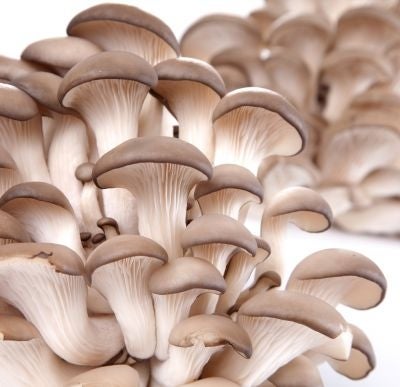Your support helps us to tell the story
From reproductive rights to climate change to Big Tech, The Independent is on the ground when the story is developing. Whether it's investigating the financials of Elon Musk's pro-Trump PAC or producing our latest documentary, 'The A Word', which shines a light on the American women fighting for reproductive rights, we know how important it is to parse out the facts from the messaging.
At such a critical moment in US history, we need reporters on the ground. Your donation allows us to keep sending journalists to speak to both sides of the story.
The Independent is trusted by Americans across the entire political spectrum. And unlike many other quality news outlets, we choose not to lock Americans out of our reporting and analysis with paywalls. We believe quality journalism should be available to everyone, paid for by those who can afford it.
Your support makes all the difference.All-natural, vegetarian meat-flavored food products made from mushrooms could satisfy carnivores without harming the earth - or laying a finger on any bovine beasts.
At a time when environmentalists and health authorities are mounting loud, vocal campaigns to reduce the amount of red meat consumption, scientists are mining the potential of mushrooms to produce natural "meaty" flavors, cow-free.
After fermenting oyster mushrooms with the addition of amino acids and sugars and heat-treating the different samples, scientists from the US and China found that the mushrooms produced flavor profiles that ranged from meaty, sweet, earthy, musty, pungent and caramel.
In their study, published online in the International Journal of Food Science & Technology last week and reported by FoodNavigator.com, researchers at the University of Arkansas called their findings a first: while previous studies were able to demonstrate the formation of volatile compounds from edible mushrooms, the production and isolation of meaty flavor compounds has never been reported, they wrote.
The findings could have significant implications in the food industry as a meat flavor enhancer which is all-natural and convincing.
"Nearly 80 percent of the flavours and fragrances used world-wide are produced chemically ... However, the increasing health and nutrition-conscious lifestyle trend globally, warrant the use of natural flavours in foods," researchers wrote. "Consumers prefer natural flavours to synthesized flavours."
Attaining the right flavor balance is also extremely important for food manufacturers in order to be able to pass the product off as an acceptable replacement for consumer palates, they added.
Red meat has been suffering a bad rap recently. Health authorities have been sounding the alarm about the health risks of eating too much meat, including the increased risk of cancer and heart disease; a rising middle class in China and India is pushing up consumption to potentially unsustainable rates; and environmentalists vilify this food group as the bane of Mother Nature's existence.
Meanwhile, in the race to create man-made, laboratory meat and make it commercially available, an international panel of scientists met earlier this month to establish an MO outlining common positions and attract funding.
http://onlinelibrary.wiley.com/doi/10.1111/j.1365-2621.2011.02778.x/full

Join our commenting forum
Join thought-provoking conversations, follow other Independent readers and see their replies
Comments